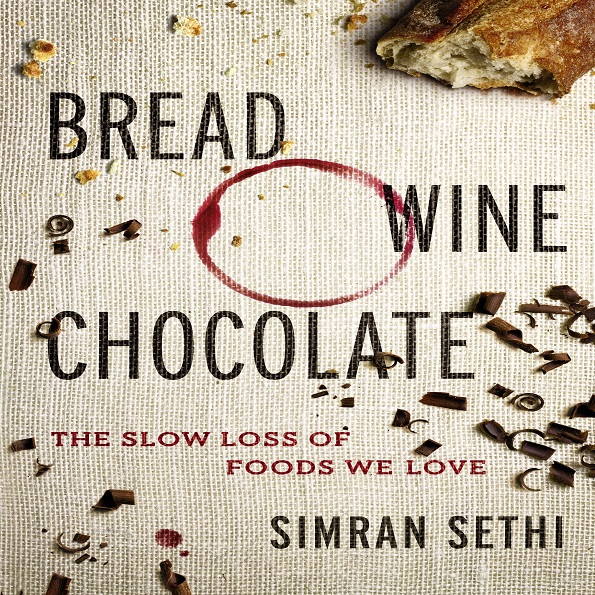“This is a book about food, but it’s really a book about love.”- Simran Sethi
How would you give someone some bad news about the foods they love? You seat them at the table, open your best bottle of wine or hand them a piece of chocolate, a slice of freshly baked bread maybe, and slowly tell them about the loss of agricultural biodiversity and its effect on what lands up on their plates. Author Simran Sethi does all of that (add a glass of beer or a cup of coffee to it as well), but instead of just giving us a volley of facts and information to process, Sethi takes on a journey to understand these favorite foods, trace their paths to our plates and talk to the many people who are trying their best to preserve what is available.
“This is a book about food, but it’s really a book about love.”- writes Sethi at the beginning. An environmental journalist and an educator with a passion for sustainability Sethi’s love for food is evident as she travels through six countries in search for answers while reflecting on her own food choices. We also meet a motley of people who express this love through their work. A brewer in England with a tattoo of Linalool, coffee farmers in Ethiopia, scientists, chocolate connoisseurs, and many others. While reading this book, amidst awe for their dedication to food (Sethi included) , I had awkward moments of self-realization. How little do we know about something that nourishes us on a daily basis?
At one point in the book Sethi writes about wild coffee “But not everyone agrees that inherent earthiness is a good attribute. The mark of specialty coffee is a cup that’s absent of defects. Wild coffee tastes exactly how it sounds; unpredictable, muddy in the cup and unusually sun-dried in its skin (known as the “natural” process), handled without extensive effort because the market is small not really profitable.”
The word unpredictable is something that I do not easily associate with a staple like coffee. For most people the loss of biodiversity is a phenomenon happening somewhere. But what we do not realize is the impact is far more imminent than we would expect it to be . Sethi writes about how we seek the same tastes and often are not up for surprises. My coffee is the first thing I reach out to in the morning, and unless deliberately opted for, I am not really looking for surprises. But what if I agreed to be surprised? What if we embraced these “unique” tastes? Won’t that open up a world of new possibilities for the makers of our food and for us?
As I write the review for this book, I am reminded of the essayist, farmer, conservationist Wendell Berry’s famous quote “Eating is an agricultural act.”Bread, Wine, Chocolate” is a book that every food lover, for that matter every one of us must read. As much as we need to understand this loss, we also need to understand how we fit into the equation as a consumer. But as we focus on diversity or regional and local varieties, we still need to factor in the many mouths that need to be fed. It remains to be seen how these changes will have an impact on affordability and meeting food requirements all over the world.
Author Website : Link
Book Details: Amazon Flipkart Goodreads
Additional Readings : Nourishment by Simran Sethi,
UN: Only Small Farmers and Agroecology Can Feed The World
Image Courtesy of Simran Sethi

